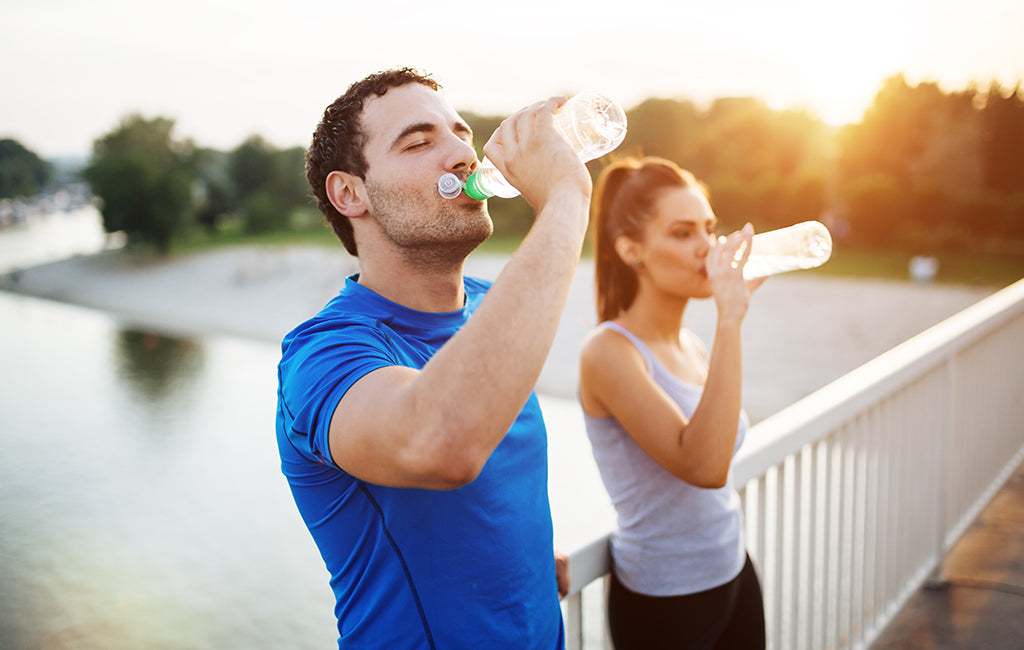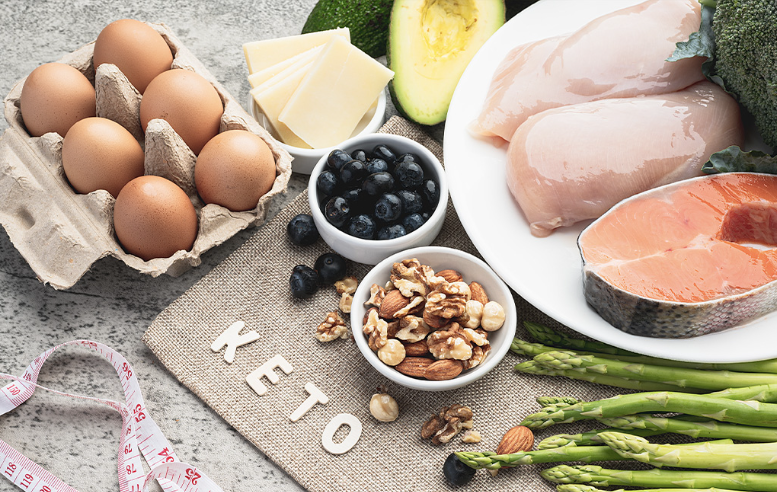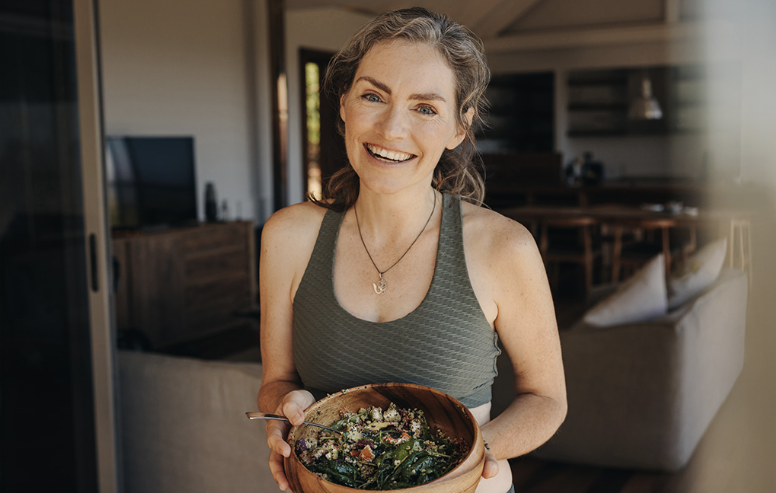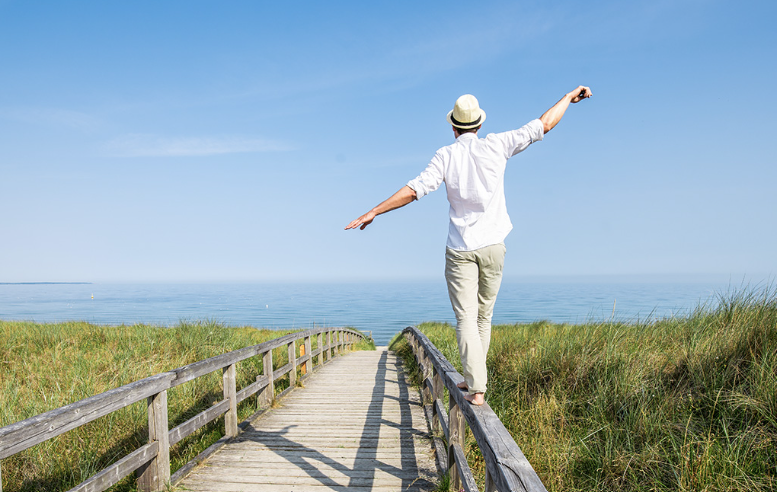
Are you finding yourself a little worse for the wear? Sometimes big days at the gym or days spent hunched over a computer screen can lead to stiff, sore and achy muscles. Usually, that means unnecessary strain and fatigue in the mornings and extra discomfort at night.
While muscle soreness might seem like an inevitable part of physical activities, it doesn’t have to be.
This guide will dive deep into how to prevent muscle soreness. From stretching to CBD oil supplements, we’ll help you avoid unnecessary aches and keep your body loose, limber and ready for the next adventure.
#1 Stay Hydrated
Do you leave the gym feeling thirsty but find yourself constantly forgetting your water bottle? That tension you’re feeling could have something to do with how much (or little) water you’re drinking.
We all know hydration is key to our health, but did you know there’s a direct link between your muscle-joint health and your hydration levels? Water acts to:
- Hydrate discs – Between your vertebrae are essential discs that play a key role in your flexibility and general comfort. These discs, as well as tendons and ligaments, are reliant on water to remain viable.
- Strengthen cartilage – The soft and pliable material known as cartilage works to allow muscles and joints to stretch, bend and grow. Without proper hydration, cartilage will become weaker and more brittle, leading to more pain and potential injury.
- Enhance muscle recovery – Wondering how to get rid of soreness? Whether you’ve sustained an injury or are just focusing on your physical fitness, muscles can tear and regrow. This process can be severely hindered if you’re not drinking enough water, making for a longer and more agonizing recovery period.
One of the best things you can do to make everything a little easier on your body (muscles included) is to make your hydration a priority.
Whether you carry a water bottle everywhere you go, place a full glass on your bedside table or prefer sparkling over still, you can prevent and combat muscle soreness by making hydration a part of your daily health routine.
#2 Prioritize Your Sleep
Between work, play and personal goals, catching some z’s might fall to the wayside. But if you’re serious about maintaining your health and preventing muscle soreness, sleep is one of the best ways to do it.
Physically, your body uses sleep as a way to refresh and rebuild from the previous day’s activity. That includes processes like:
- Lactic acid removal – Muscle soreness is frequently caused by lactic acid buildup in the muscles, which is a result of oxygen breaking down in the bloodstream. While you sleep, your body manages the biological processes necessary to begin the breakdown of excess lactic acid, putting you on the path toward pain-free muscles.
- Tear repair – As we’ve already mentioned, muscles can tear as you exercise. Much of your muscular repair takes place during your deep sleep, also called REM. That means not only do you need to get the CDC recommended 7+ hours of sleep per day, but those hours also need to be consecutive and uninterrupted to fully help your body prevent muscle soreness and recover faster.
However, getting the recommended level of daily sleep might not be as easy as closing your eyes. To that end, consider investing in pillows and mattresses that meet your needs when it comes to comfort and support.
Additionally, try to regulate your sleep by hitting the hay at the same time each night and waking up at the same time each morning. It may take some adjusting, but your muscles will thank you for it.
#3 Try Topicals
If you’re already beginning to feel the onset of muscle soreness or experiencing muscle aches after the same daily run, you can look to topical balms, creams, sprays and rubs to target your problem areas before and after your muscles start to ache.
Curious about the capabilities of topic treatments? Consider the following options when looking to relieve your sore muscle:
- CBD – A non-psychotropic extract from the hemp plant, CBD is one of the natural sleep aids that may assist in muscle recovery and can help promote reduced soreness by interacting with the body’s endocannabinoid system. Consider trying a topical CBD balm or CBD rub, and experience the effects for yourself.
- Capsaicin – Derived from chili peppers, capsaicin is a natural ingredient commonly used for muscle relief. It’s organic and can help to prevent muscle soreness. Just be careful — it may cause your skin to tingle or burn when first applied.
- Salicylates – The topical equivalent of aspirin, salicylates come in creams and balms that can be applied directly to body parts for relatively fast relief.
Remember to never apply topical solutions to open cuts or wounds, and avoid using topicals with heating pads. That said, balms and rubs can be a convenient way to reduce your soreness quickly and effectively. Plus, many of them have a pleasant aroma and can have added benefits for your skin.
#4 Remember to Warm-Up and Cool Down
As much as some of us love diving headfirst into the task ahead, when it comes to muscle soreness, warming up and cooling down is key to preventing unnecessary injuries and extra soreness.
Whether you’re doing weight lifting, cardio or just preparing for a physically active day, consider the following warm-up tips to protect your muscles from feeling stiff, sore and achy later on:
- Get loose – It can help to take a few deep breaths and slowly start loosening your muscles to let go of built-up tension and relax your body wholly.
- Start moving, slowly – Consider a stroll to prepare your body for your upcoming strenuous exercise — start with slow and long steps, then gradually build up to a quicker pace.
- Don’t forget to cool down – At the end of your workout, it can help to cool down with a bit of jogging, walking or simple stretching to increase blood flow through your muscles.
You may be wondering, what about stretching before? Well, despite what you may have done in the past, recent research has shown little difference in soreness or injury when comparing people who stretch before they exercise and those who don’t. There is actually a great correlation between cold muscle stretching causing injuries.
#5 Consider Your Diet
You are what you eat. That means adhering to a diet that provides your body with the essential vitamins and minerals can promote holistic health that benefits your muscles, too.
When it comes to building a practical diet that can ease muscle soreness, consider things like:
- Omega-3 fatty acids – Found in seeds, nuts and some fish, omega-3 fatty acid is known for its anti-inflammatory properties, which may have an impact on your day-to-day discomfort level.
- Protein – Thought of as the essential building block of your cells, protein is key to muscle repair and muscle growth. To keep your muscles happy, assure that you’re getting your daily dose of protein from things like eggs, yogurt, meat and poultry.
- Caffeine – It may sound surprising, but a solution to your sore muscle might be in your morning pick-me-up. Some studies have found a correlation between caffeine and muscle recovery. So, why not gulp down a cup of joe for the sake of your health?
Muscle soreness may also result from not getting enough of the right nutrients, vitamins and minerals in your diet. Luckily, adding supplements to your diet with ingredients like turmeric, vitamin D and Boswellia can help to ease muscle stiffness and discomfort.
Zebra CBD crafts CBD Joint & Muscle Tablets designed expressly to help your joints and muscles feel their best.
#6 Turn Up the Heat
Before your muscles get too tense to touch, consider applying some heat to your typically sore areas.
This method of muscle soreness prevention, known as “heat therapy,” works by:
- Dilating blood vessels – When you place a heating pad on your body, the heat dilates the blood vessels of your muscles, lowering your blood pressure.
- Increasing blood flow – Dilated blood vessels mean more blood circulation, which helps the body speed up its removal of lactic acid. It also moves blood to areas that lack oxygen, such as your muscles.
- Allowing muscles to relax – Heat can loosen tightly clenched muscles, thereby preventing excess soreness and tight muscles post-workout.
In some cases, the opposite — cold — has been effective in preventing and lessening muscle soreness. Known as cryotherapy, specific areas of the body can be cooled down to reduce swelling and numb sore muscles. You can even experiment with both heat and cold, switching between an ice pack and a hot pad to find out what brings your muscles the best relief.
Get a Little Help From Your Friends at Zebra CBD
With a new set of tips and tricks to keep your muscles feeling good from morning to evening, you’re probably ready to start celebrating, bending and stretching your way to better days.
Before you start your next adventure or embark on another physical activity, we have one more piece of advice — check out Zebra CBD.
Not only do we have an online store full of CBD roll-on, tablets and gummies, we also have amazing topical CBD solutions that can provide target relief for any of your daily aches. At Zebra CBD, we believe muscle soreness is avoidable, that’s why we’re committed to bringing you premium, organic products to help you feel exactly how you should — your best.
Source:
CDC. How much sleep do I need? https://www.cdc.gov/sleep/about_sleep/how_much_sleep.html
Harvard Health Publishing. Ask the doctor: Stretching before exercise. https://www.health.harvard.edu/staying-healthy/ask-the-doctor-stretching-before-exercise









